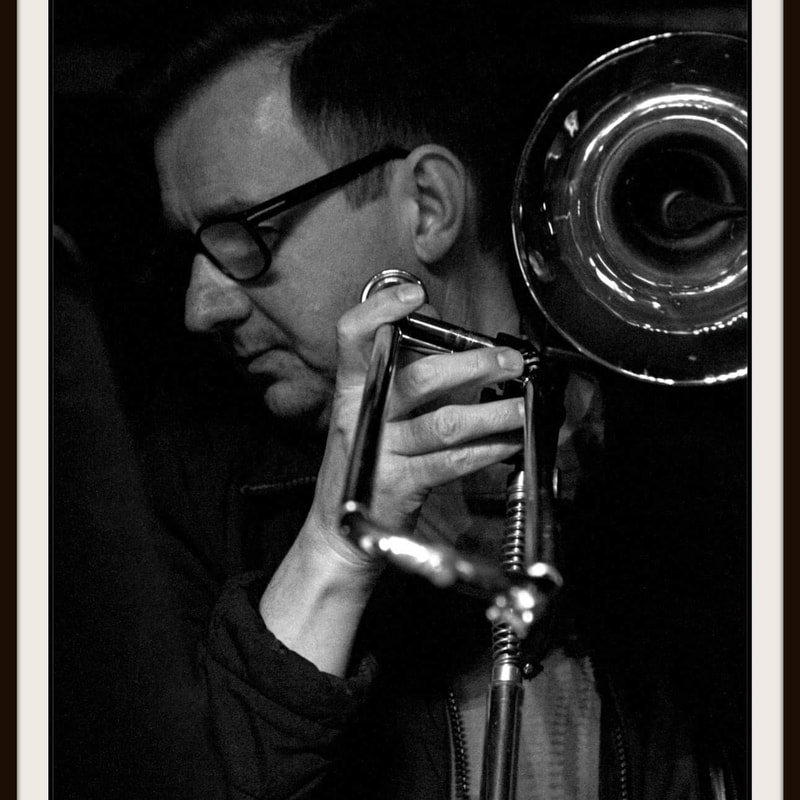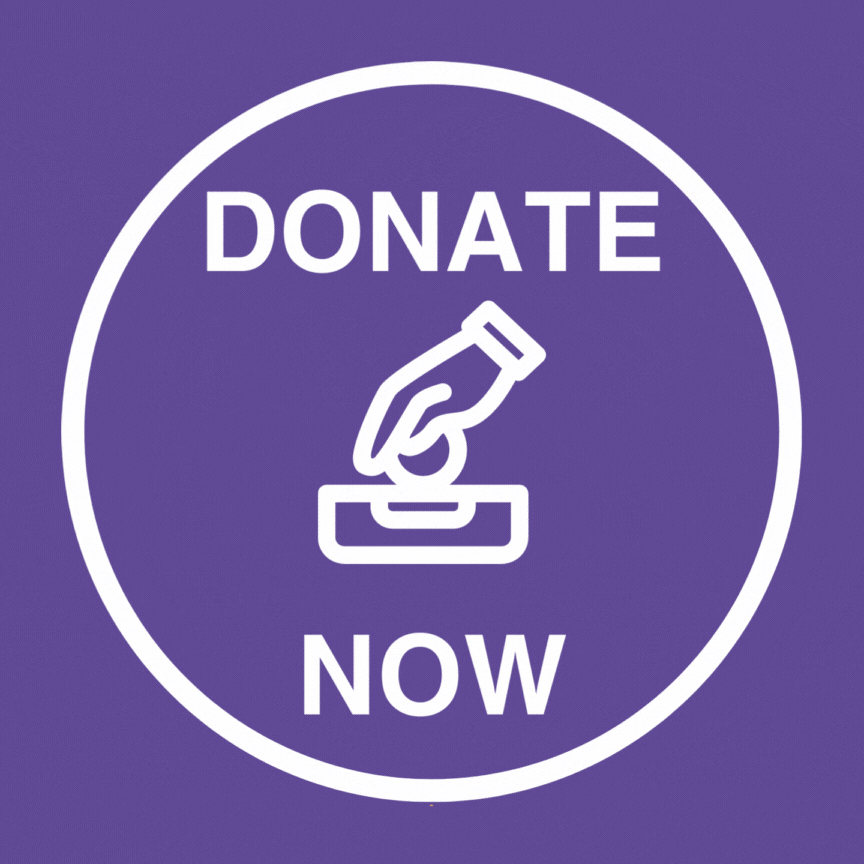Case study: How a stroke was no match for the might of the tromboneHere we tell the story of musician, performer and music teacher, Will McLean, and how much his love for music meant to his recovery.
|
Will Mclean is a musician, performer and music teacher, based in Portadown, Northern Ireland.
When he suffered a devastating stroke in 2017, ‘conventional’ playing of the instrument he loved, was out of the question. Will was able to get back to music-making, however, with the aid of specially adapted equipment.
Here he explains what a love for music has meant to his recovery.
When he suffered a devastating stroke in 2017, ‘conventional’ playing of the instrument he loved, was out of the question. Will was able to get back to music-making, however, with the aid of specially adapted equipment.
Here he explains what a love for music has meant to his recovery.
|
I’ve been involved in music for many years. I trained at the Royal College of Music in Kensington before moving back to Northern Ireland in 1997. Originally, I taught trombone in grammar schools before getting a job with Southern Education and Library Board Music Service (now amalgamated with other Music Services in Northern Ireland to become the Education Authority Music Service.)
My life was great, and incredibly active. By day, I was helping children and young people develop a range of high-quality musical experiences. By night and by weekend, I was at rehearsals or playing at gigs. Music was my absolute passion and it was at the centre of everything. Whilst trained on both the bass and tenor trombone, the versatility of the latter in ska, reggae and funk, particularly appealed to me. It was a skill and passion that led to me joining The Vibes, a Belfast-based soulful reggae band. |
Overnight, things change...
In 2017, I was to be dealt an unexpected blow. Following wall-to-wall gigging over one particular weekend, I suffered a stroke while watching a late -night film on tv. I lay undiscovered by my family until the next morning. As I was drifting in and out of consciousness, my only recollection was hearing the same Samba Latin Groove in my head. As I described in an interview with BBC Radio Ulster recently, I firmly believe that it was music that saved my life at that point, and kept the stroke at bay as it tried to wreak its chaos in my mind.
I was in hospital for ten weeks as a result, unable to speak clearly for the first two of them. Buzzing on my mouthpiece actually helped my face to recover. Again, my music aided my recovery. When I was discharged, I struggled to walk even a few steps without feeling incredible exhaustion. Like so many others whose lives have been hijacked by a stroke, the road to recovery was a long and frustrating one.
Fortunately, I’ve made really great progress since then. I can now walk and drive although I’ve been left with paralysis on one side. Getting back to playing music at the level I wanted to, has been one of the greatest challenges. It’s also been one of the most important.
If you have any form of weakness in your arms, playing the trombone – which requires such energy and gusto – is impossible when using an instrument conventionally. It requires a combination of coordination, concentration and physical strength, which are often severely affected by stroke. It took me a year and a half to build up to performing for an hour, perched on my stool.
My return to work was a phased one. At my first full training session, I heard guest speaker Gary Day, Director of Garden of Music, present on their incredible work in accessible music making. It turned out that his brother was a very fine player of the trombone and an ex- pupil of the Music Service. Gary introduced me to Rachel Wolffsohn, the General Manager at The OHMI Trust who made me aware of the Ergobone trombone support.
With this adapted piece of equipment, I had the best opportunity, slowly but surely, to improve my performance and to take up my place once more with The Vibes (who had chosen not to replace me in the band – a decision for which I am incredibly grateful). In 2019, I started playing with them again and was delighted to join them in the same year as the support act for the legendary ska revival band, The Specials, at the Bangor Open House Festival. We continue to be regulars on the Belfast music scene.
More recently, OHMI has introduced me to the work of Michael Rath, a world-class trombone producer in Yorkshire. With the support of an Arts Council NI grant, I am very privileged to now own one of his trombones; adapted especially for me (adjusted so that there’s more room for my left hand). It’s been sprayed a gun-metal grey, and inside the bell is highly polished silver nickel. It really is a thing of beauty, both musically and aesthetically.
To any musician who has suffered a stroke – my advice would be open your mind to music and never say No. The road to recovery will be undeniably challenging but you need to take encouragement from even the small improvements.
I thank God every day that I’m still here. I’m excited about my future; and it’s my love of music (and, of course, my family) that gives me such hope.
Will’s performances can be viewed here:
I was in hospital for ten weeks as a result, unable to speak clearly for the first two of them. Buzzing on my mouthpiece actually helped my face to recover. Again, my music aided my recovery. When I was discharged, I struggled to walk even a few steps without feeling incredible exhaustion. Like so many others whose lives have been hijacked by a stroke, the road to recovery was a long and frustrating one.
Fortunately, I’ve made really great progress since then. I can now walk and drive although I’ve been left with paralysis on one side. Getting back to playing music at the level I wanted to, has been one of the greatest challenges. It’s also been one of the most important.
If you have any form of weakness in your arms, playing the trombone – which requires such energy and gusto – is impossible when using an instrument conventionally. It requires a combination of coordination, concentration and physical strength, which are often severely affected by stroke. It took me a year and a half to build up to performing for an hour, perched on my stool.
My return to work was a phased one. At my first full training session, I heard guest speaker Gary Day, Director of Garden of Music, present on their incredible work in accessible music making. It turned out that his brother was a very fine player of the trombone and an ex- pupil of the Music Service. Gary introduced me to Rachel Wolffsohn, the General Manager at The OHMI Trust who made me aware of the Ergobone trombone support.
With this adapted piece of equipment, I had the best opportunity, slowly but surely, to improve my performance and to take up my place once more with The Vibes (who had chosen not to replace me in the band – a decision for which I am incredibly grateful). In 2019, I started playing with them again and was delighted to join them in the same year as the support act for the legendary ska revival band, The Specials, at the Bangor Open House Festival. We continue to be regulars on the Belfast music scene.
More recently, OHMI has introduced me to the work of Michael Rath, a world-class trombone producer in Yorkshire. With the support of an Arts Council NI grant, I am very privileged to now own one of his trombones; adapted especially for me (adjusted so that there’s more room for my left hand). It’s been sprayed a gun-metal grey, and inside the bell is highly polished silver nickel. It really is a thing of beauty, both musically and aesthetically.
To any musician who has suffered a stroke – my advice would be open your mind to music and never say No. The road to recovery will be undeniably challenging but you need to take encouragement from even the small improvements.
I thank God every day that I’m still here. I’m excited about my future; and it’s my love of music (and, of course, my family) that gives me such hope.
Will’s performances can be viewed here:
To any musician who has suffered a stroke - my advice would be to open your mind to music and never say No. The road to recovery will be undeniably challenging but you need to take encouragement from even the small improvements.
Donate to OHMIThere are so many disabled people who are desperate to play music with their peers. We can help to make that happen – but we can only do that with the wonderful support of our funders and donors.
As our instruments have to be hand-made by experts, they can only be produced in small numbers and are therefore expensive. Every little really does help.
|
Contact usIf you have a query or wish to contact us, please use the contact form available here.
You can also write to us: The OHMI Trust, 29 Woodbourne Road, Harborne, Birmingham B17 8BY |
Subscribe to our NewsletterIf you would like to join our mailing list and keep up to date with the latest news, please complete the form available here.
|
Privacy and Cookies Notice | Complaints Policy
All content © OHMI - Enabling Music-Making for Physically Disabled People
The OHMI Trust is a registered charity (Registered in England and Wales Charity No. 1143623, Scotland Charity No. SC052047).
Registered office: 29 Woodbourne Road, Harborne, Birmingham, B17 8BY
All content © OHMI - Enabling Music-Making for Physically Disabled People
The OHMI Trust is a registered charity (Registered in England and Wales Charity No. 1143623, Scotland Charity No. SC052047).
Registered office: 29 Woodbourne Road, Harborne, Birmingham, B17 8BY





